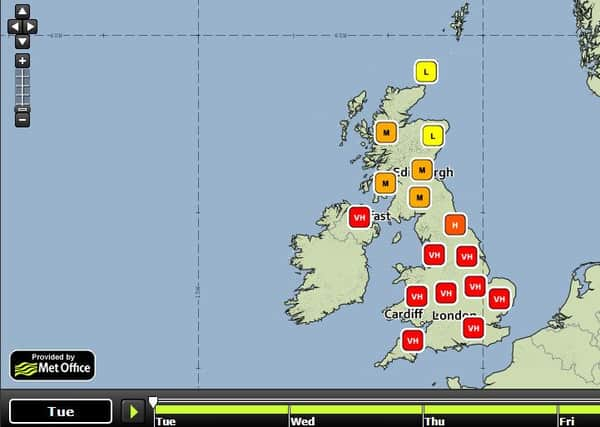Health alert: ‘Very high’ pollen levels forecast


Experts are warning hay fever sufferers they may see an increase in their symptoms, including a rash, itchy, watery eyes and nasal congestion. More serious symptoms could include breathing difficulties.
It’s estimated that one in five people in the UK have some form of hay fever, ranging from allergies to grass pollen to various tree pollens.
Your hay fever facts:
Hayfever’s official title is allergic rhinitis
Advertisement
Hide AdAdvertisement
Hide AdThe main feature of the condition is inflammation of the nasal passages, caused by an allergic reaction to pollen
Trees, weeds and grasses produce large amounts of pollen (dispersed by the wind) for seed production
Different plants release pollen at different times of year, so the timing of hay fever symptoms varies
Treatments include the use of anti-histamines, corticosteroids and decongestants
Alternative treatments include bee pollen, ginger root, eyebright, goldenseal and horseradish